On the Hunt for the Best Protein Powder for Women? 12 a Health Editor Uses to Boost Satiety and Build Muscle
Let the gains, begin.

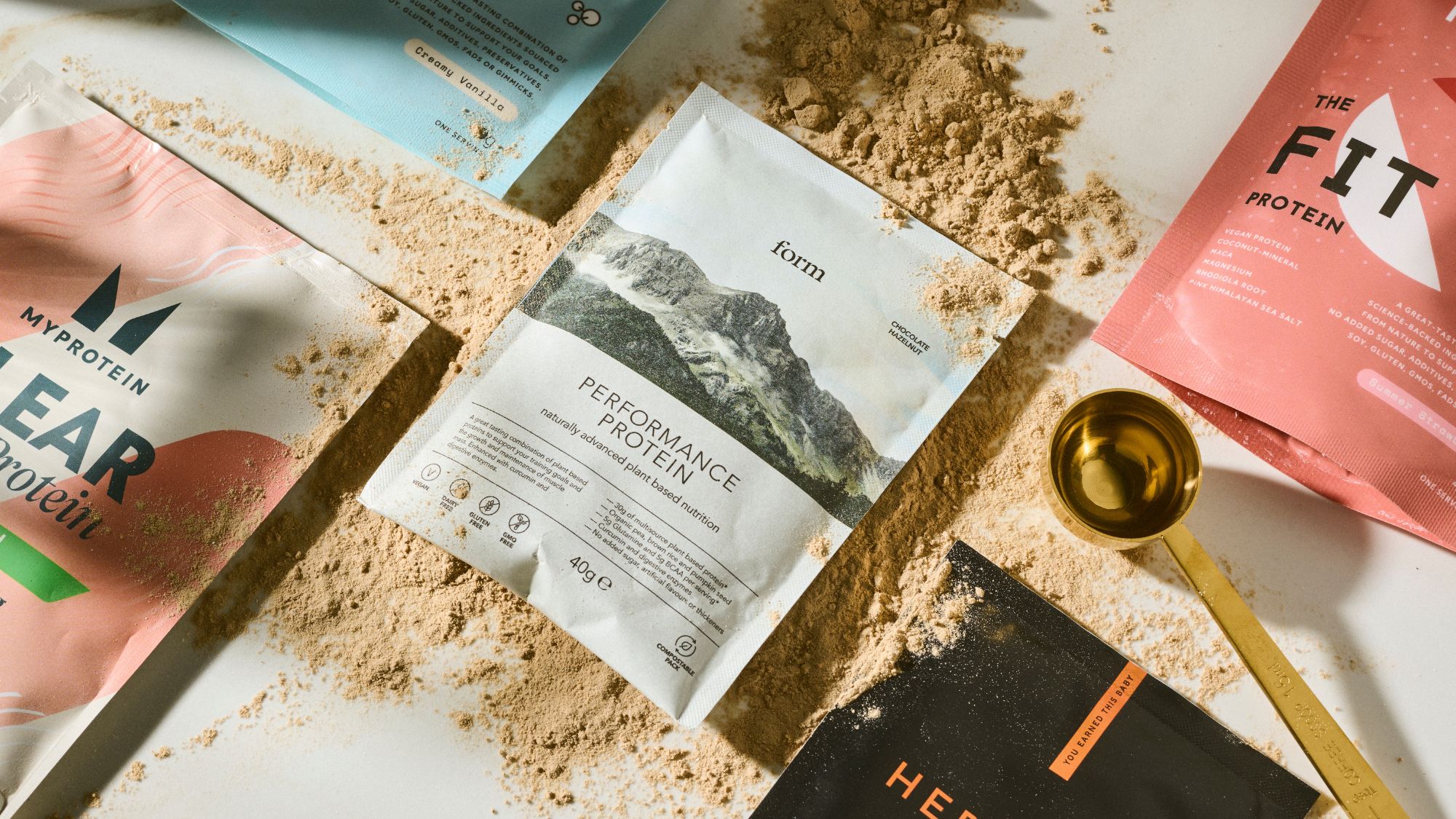
If you're on the hunt for the best protein powder for women, trust me when I say: as a Senior Health Editor, I've tried the lot and know the ones worth investing your money in (and the ones that aren't).
Focusing on your wellbeing and finding yourself Googling, what is protein, or wondering what protein powders actually are? In the simplest sense, the latter is a powdered shake designed to help you up your protein intake if you're struggling to get enough through your diet. As dietician Nichola Whitehead explains, protein is vital for everything from muscle growth to preserving lean muscle mass to repairing muscle.
While most people can - and do - get plenty of protein day to day via their food, if you're highly active or looking to build muscle, you might be considering supplementing protein. Why? Well, because studies have found that drinking a protein shake post-workout not only provides the essential amino acids needed to grow lean muscle, but also boosts satiety and muscle recovery, so you'll be more capable come your next workout session.
That said, implementing nutritional supplements into your diet can be pretty scary if you've never tried them before. So let me and my fellow experts help you cut through the confusing jargon. Keep scrolling for our rundown of the best protein powders for women currently available to buy, as well as the most common myths not to fall for. I've personally tested every protein powder in this roundup and they get my Health Editor seal of approval.
Don't miss our guides to the best clear proteins and vegan protein sources to add to your basket, and how to get enough vegan protein if you're plant-based, too.
12 best protein powders for women: Shop Health Editor-approved brands
Quick links
- Best protein overall: Welleco, £21.59 at Healf
- Best bulk buy: Impact Whey Isolate, £15.99 at MyProtein
- Best sustainable protein: Form Nutrition , £24.30 at Amazon
- Best vegan protein: FreeSoul, £23.39 at Amazon
- Best affordable protein: Pulsin Protein , £7 at Amazon
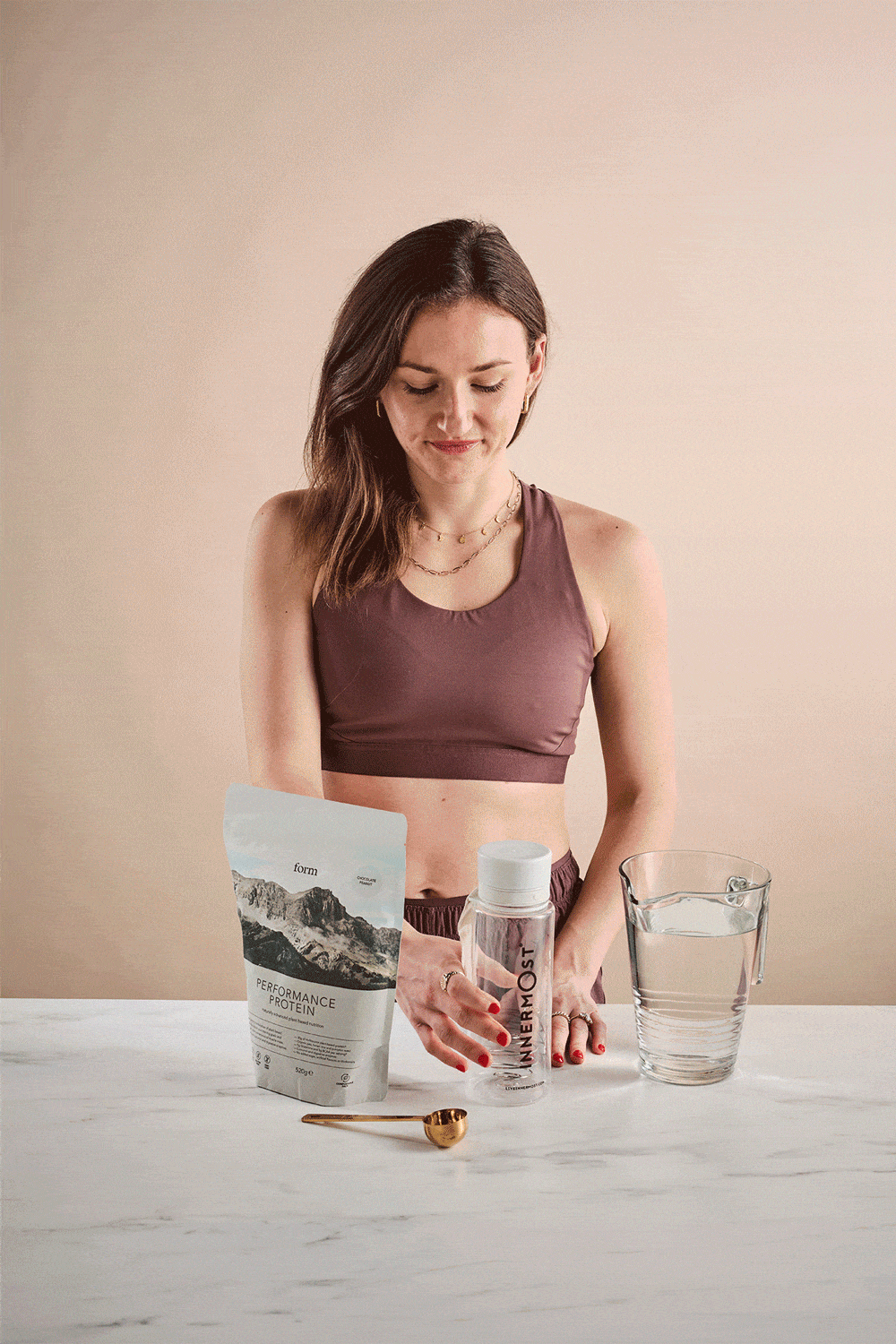
Senior Health Editor Ally Head trying some of the best protein powders featured in this article
How did we test the protein powders in this guide?
Good question. It's worth noting that protein powders are something of an acquired taste - they're a supplements, after all. That said, we did consider the following before including:
- Chalkiness: As a Health Editor who's tested close to fifty different protein powders in her time, trust me - there's nothing worse than a chalky, grainy shake. To have made the cut and been featured in this buying guide, you're getting my personal guarantee that they're silky smooth in consistency.
- Grams of protein per serving: Nutritionists and dieticians alike are in agreement that we need around 30g of protein per serving, so we only considered proteins that offered between 25 and 30g of protein per shake.
- Protein type: There are animal and plant-based protein powder options, and we've included a range in this guide. Whey, casein, and egg are all derived from animal sources, while rice, pea, soya and hemp are best for vegetarians, vegans, and those who are allergic or intolerant to dairy.
- Ease of use: Was the protein easy to use? Did it mix well with water, milk or plant-based milk? And was it easy to drink and digest? We considered all of these factors prior to inclusion.
- Price point and value for money: Finally, was the product worth the price point? Did you get a generous number of servings for the amount you spent?
12 Best Protein Powders, Tested By a Health Editor
1. Form Nutrition
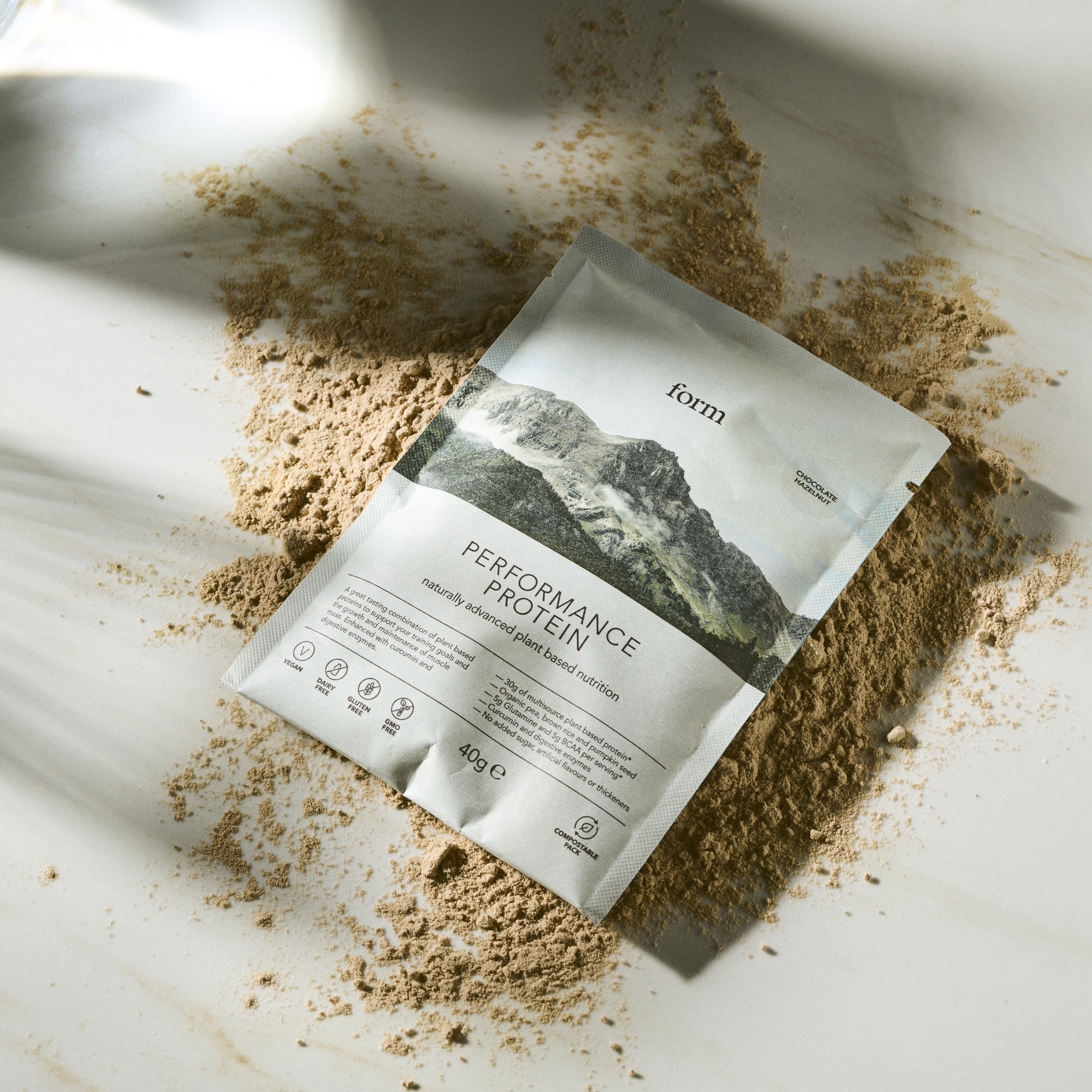
Form Nutrition Vegan Performance Protein
Specifications
Reasons to buy
Reasons to avoid
Why to buy? Easily one of the smoothest, tastiest (chocolate peanut flavour, we're looking at you) and least artificial protein powders on the market, you'll get 30g of protein per Form serving. I've used this protein for close to ten years now, mixing with both water and milk - I've never experienced any lumps, and the consistency always remains smooth and easy to drink.
Plus, you'll be doing good by people and planet, as the company is a B Corp on a mission to shake up the wellness industry.
2. MyProtein
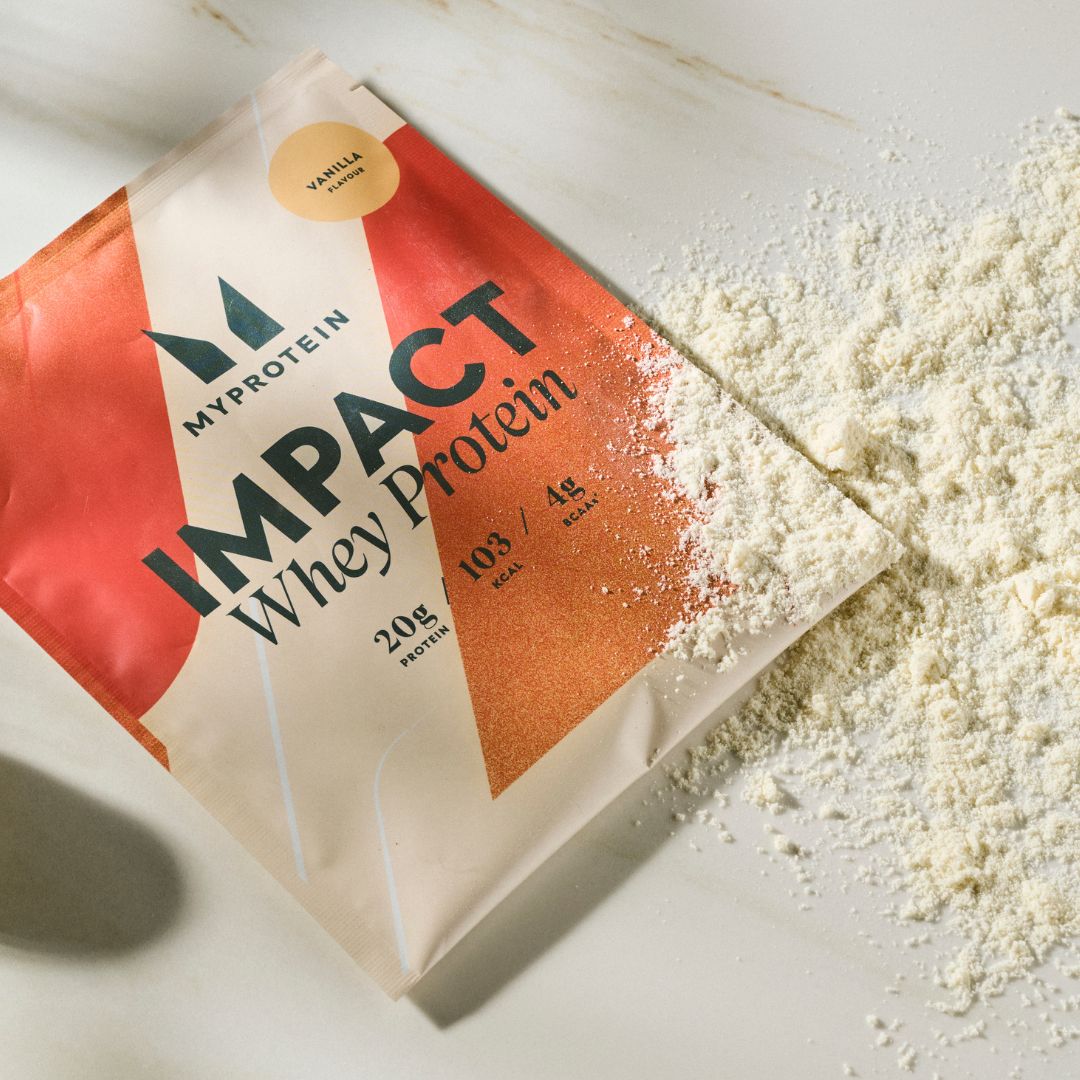
MyProtein Impact Whey Isolate
Specifications
Reasons to buy
Reasons to avoid
Why to buy? MyProtein has been winning the supplement game for a while now, with this particular product voted the UK’s most popular protein. Impressively, it comes in a massive range of over 40 flavours, including chocolate brownie and strawberries and cream.
While I was a bit sceptical pre-testing, I was pleasantly surprised by the taste and consistency - smooth, light, and creamy, with no bitter, chalky aftertaste so synonymous with other competitor brands. The kg-sized bags mean you save money and stock your cupboards for the foreseeable - although if you live in a small London flat like me, it is worth considering where you're going to store your protein before you buy.
For a budget-friendly, surefire win of a supplement, you can't go far wrong with MyProtein.
3. Innermost
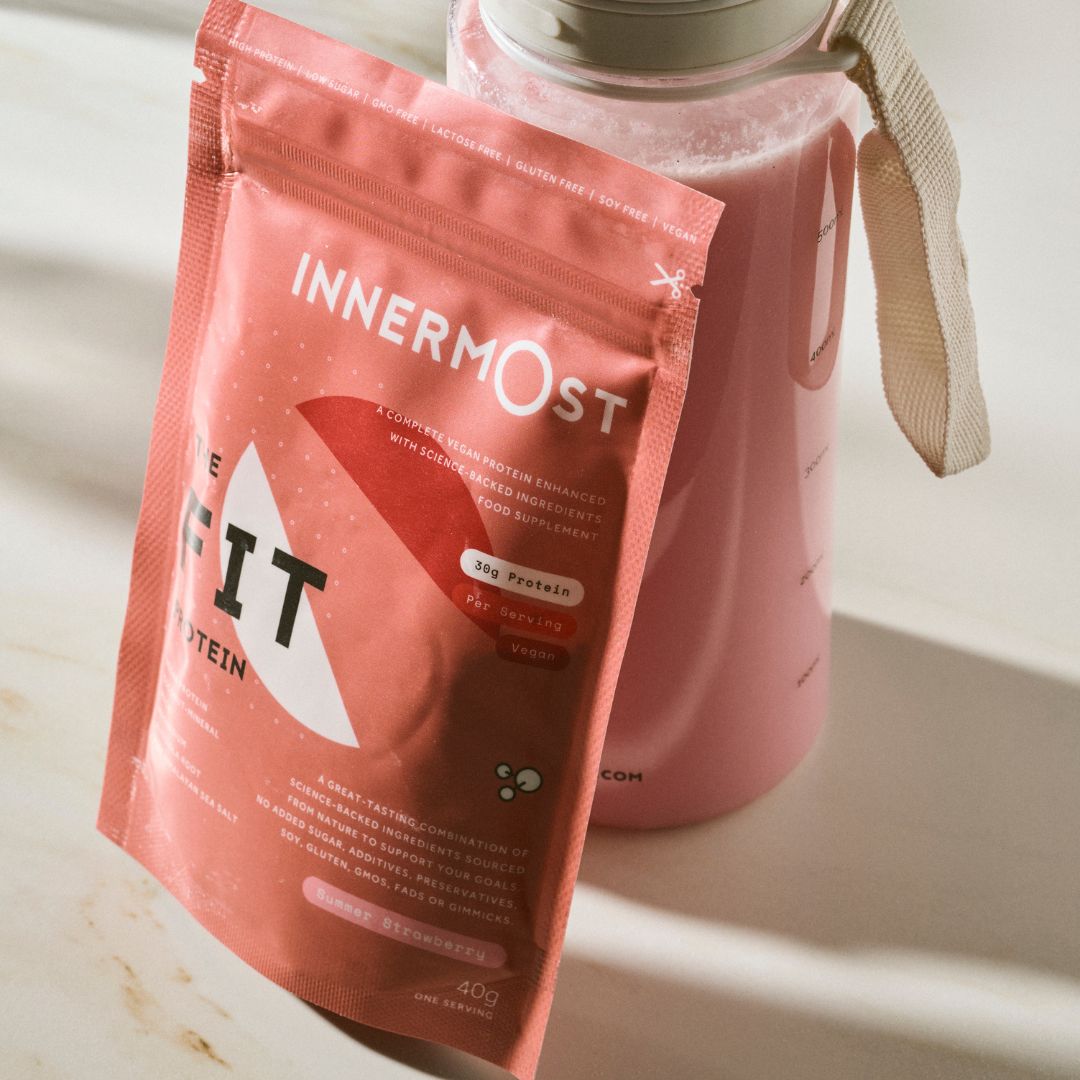
Innermost The Fit Protein Powder
Specifications
Reasons to buy
Reasons to avoid
Why to buy? Formulated to encourage muscle growth, healthy fat loss, and reduce cravings - and coming in deliciously smooth vanilla or chocolate flavour options too - there's a reason Innermost protein products are top-rated. When I tested, I mixed the powder with water and, again, it mixed easily in my protein shaker and didn't stick to the bottom or result in the dreaded lumps. NB here, too - I've always found the Innermost proteins have a slightly subtler taste than other competitors on the market, a win if you're not a fan of strong protein flavours, or a reason to avoid if you prefer your protein to pack a flavour punch.
4. Hermosa
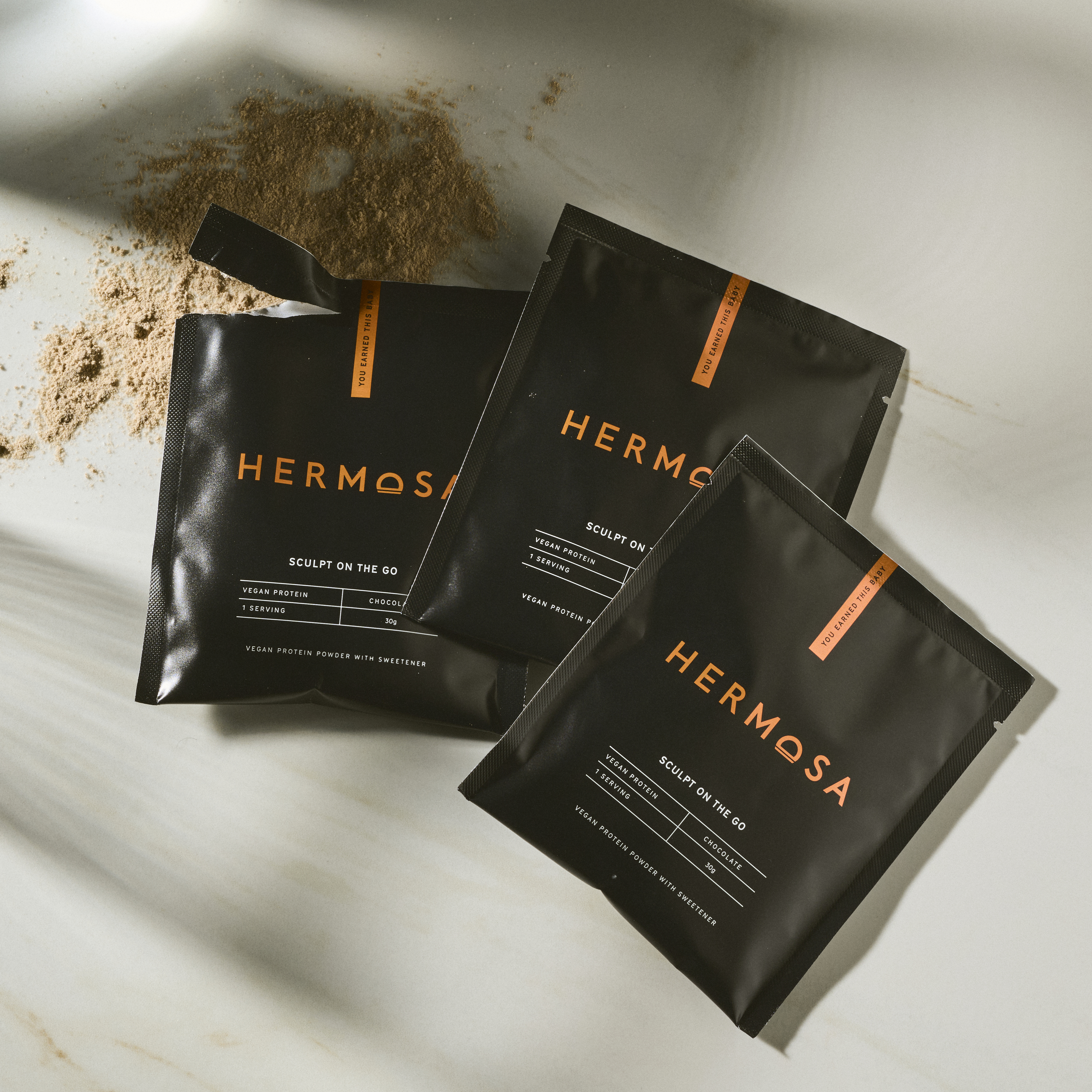
Hermosa Whey Protein Powder
Specifications
Reasons to buy
Reasons to avoid
Why to buy? Fun fact: Hermosa protein is made from the premium whey protein of grass-fed, Lake District-based cows and contains only natural sweeteners. And you can tell - it's deliciously smooth and goes well in just about anything. Easily one of the best protein powders for women, it's easy to mix and my go-to post-workout for muscle repair and refuelling.
5. The Organic Protein Company
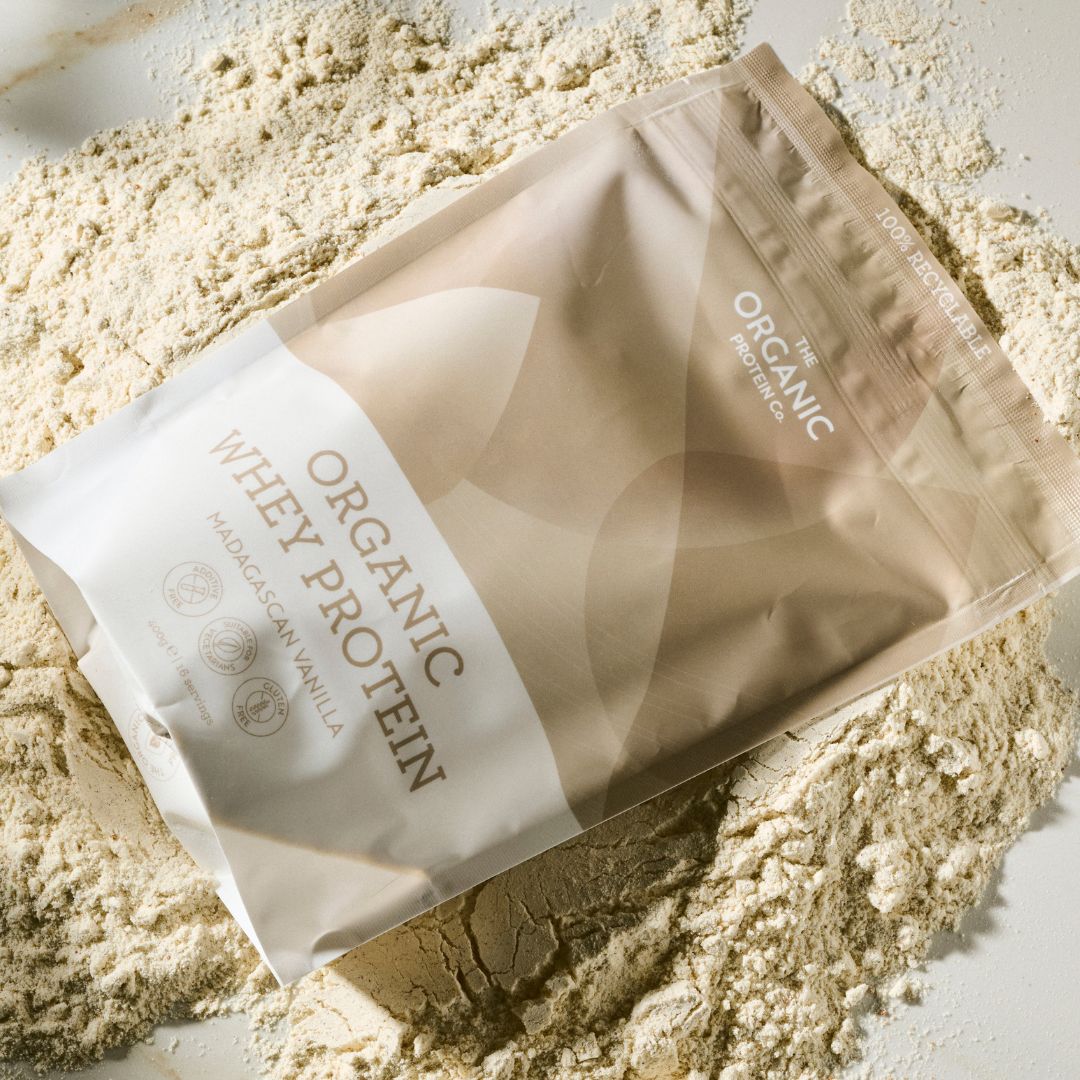
The Organic Protein Company Madagascan Vanilla Organic Whey
Specifications
Reasons to buy
Reasons to avoid
Why to buy? News Editor Jadie Troy-Pryde has been testing this protein powder and can't recommend it enough. "These protein powders are made with organic whole ingredients and taste delicious," she shares. "The raw cacao & maca flavour is now my go-to post-workout (blended with milk, it’s smooth, creamy and tastes like a chocolate milkshake), and the Madagascan vanilla works perfectly in pancakes for a protein bump. They also mix well with yoghurt for a quick high-protein snack - just remember to add some honey for sweetness - and they seamlessly blend into baked goods, too."
6. Wild Nutrition
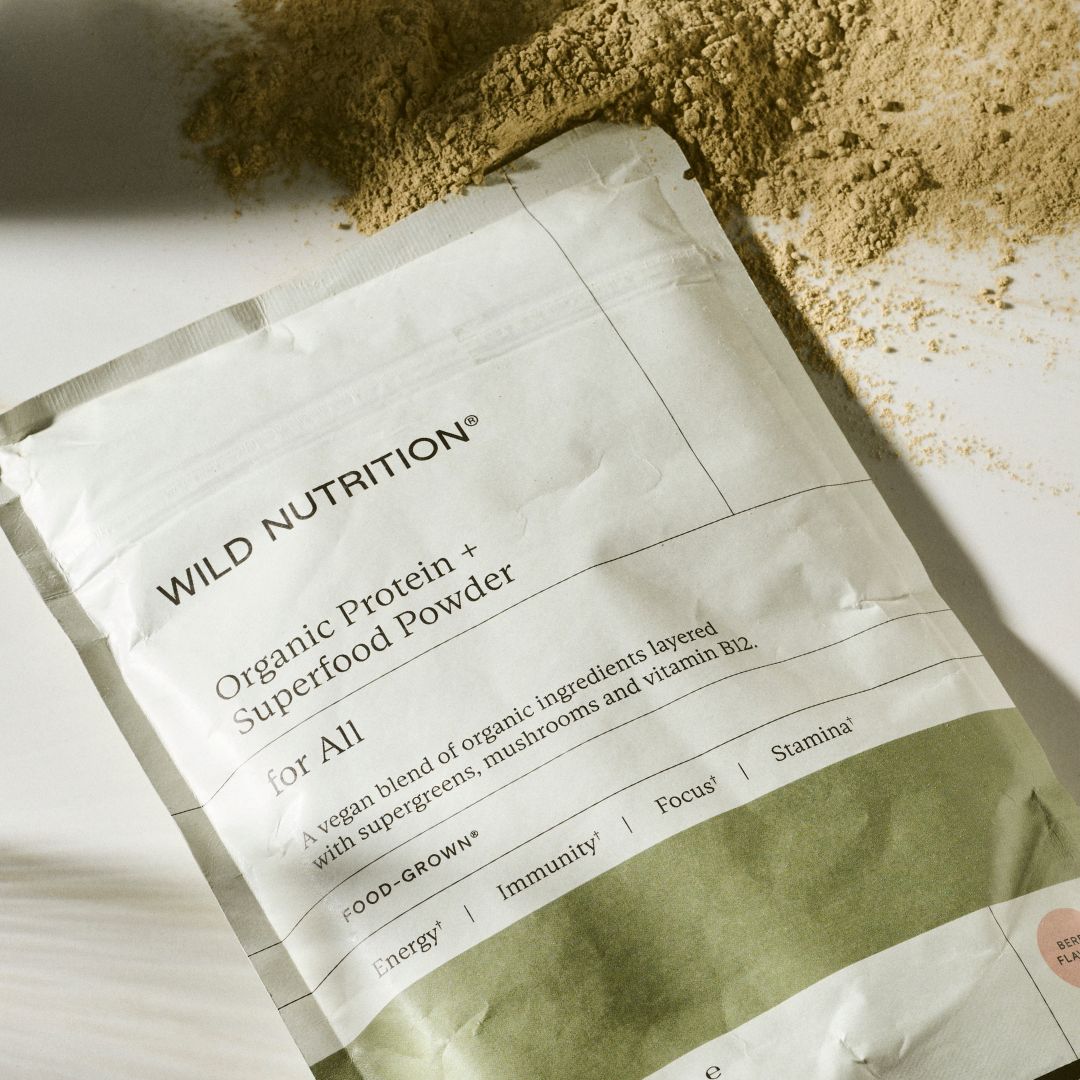
Wild Nutrtion Superfood Protein Powder
Specifications
Reasons to buy
Why to buy? One of my favourite B Corp brands, Wild Nutrition's supplements are all organic, with no fillers or binders. They're also packed full of super greens and mushrooms, you'll be upping your intake of phytonutrients and antioxidants with every scoop. While the mix is slightly chalkier than other alternatives, it is great for those who are vegan or sensitive to whey formulas, as it's made from a mix of rice and pea protein.
7. FreeSoul
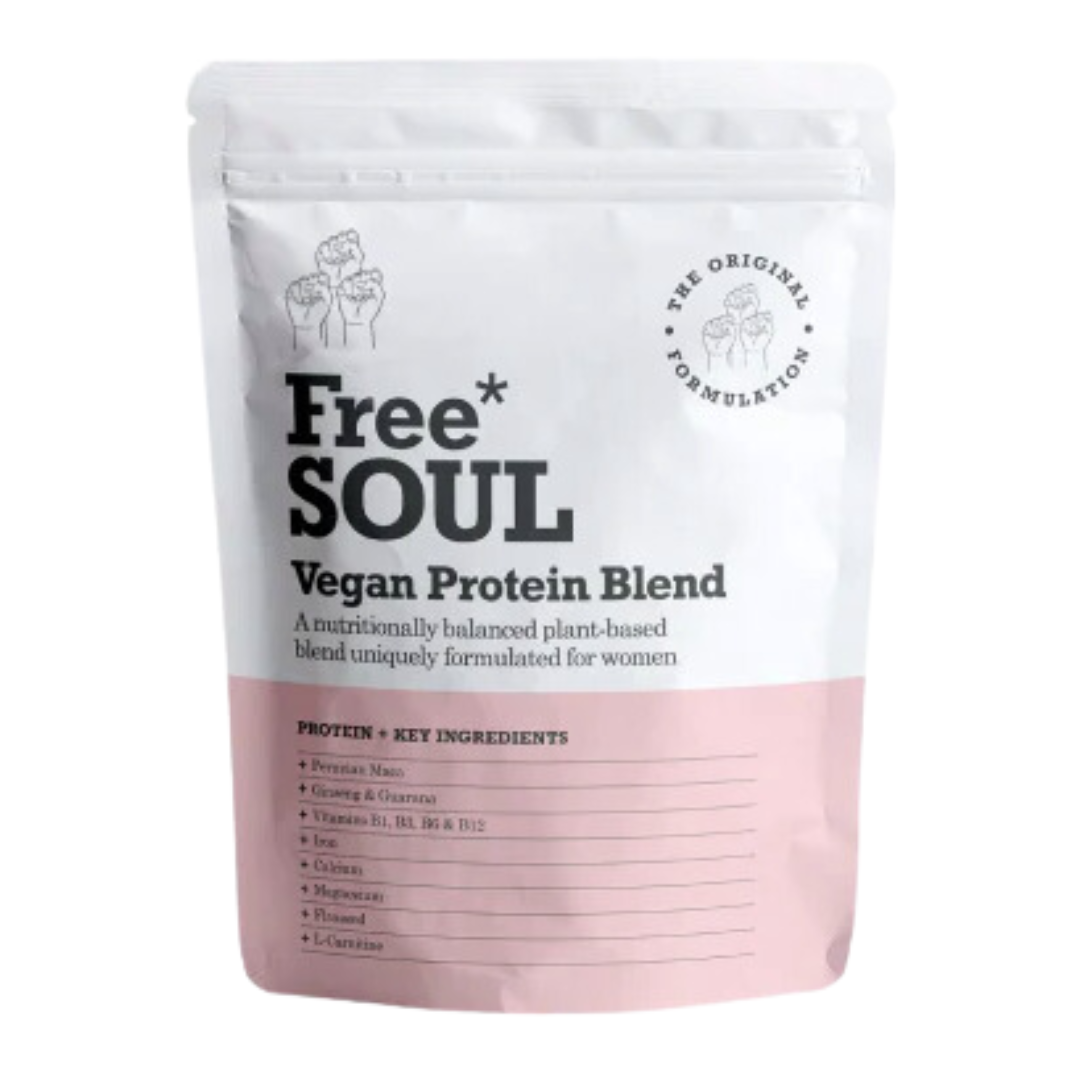
FreeSoul Vegan Protein
Specifications
Reasons to buy
Reasons to avoid
Why to buy? Like the sound of an industry-leading protein-to-serving ratio – 20g lean protein per 30g scoop? Then you'll like FreeSoul. One user, Maria, went as far as to call them the only IBS-friendly protein powder - "it's the best protein powder for anyone suffering from IBS or with a sensitive stomach - don't look elsewhere, it will save you lots of time."
8. SF Nutrition
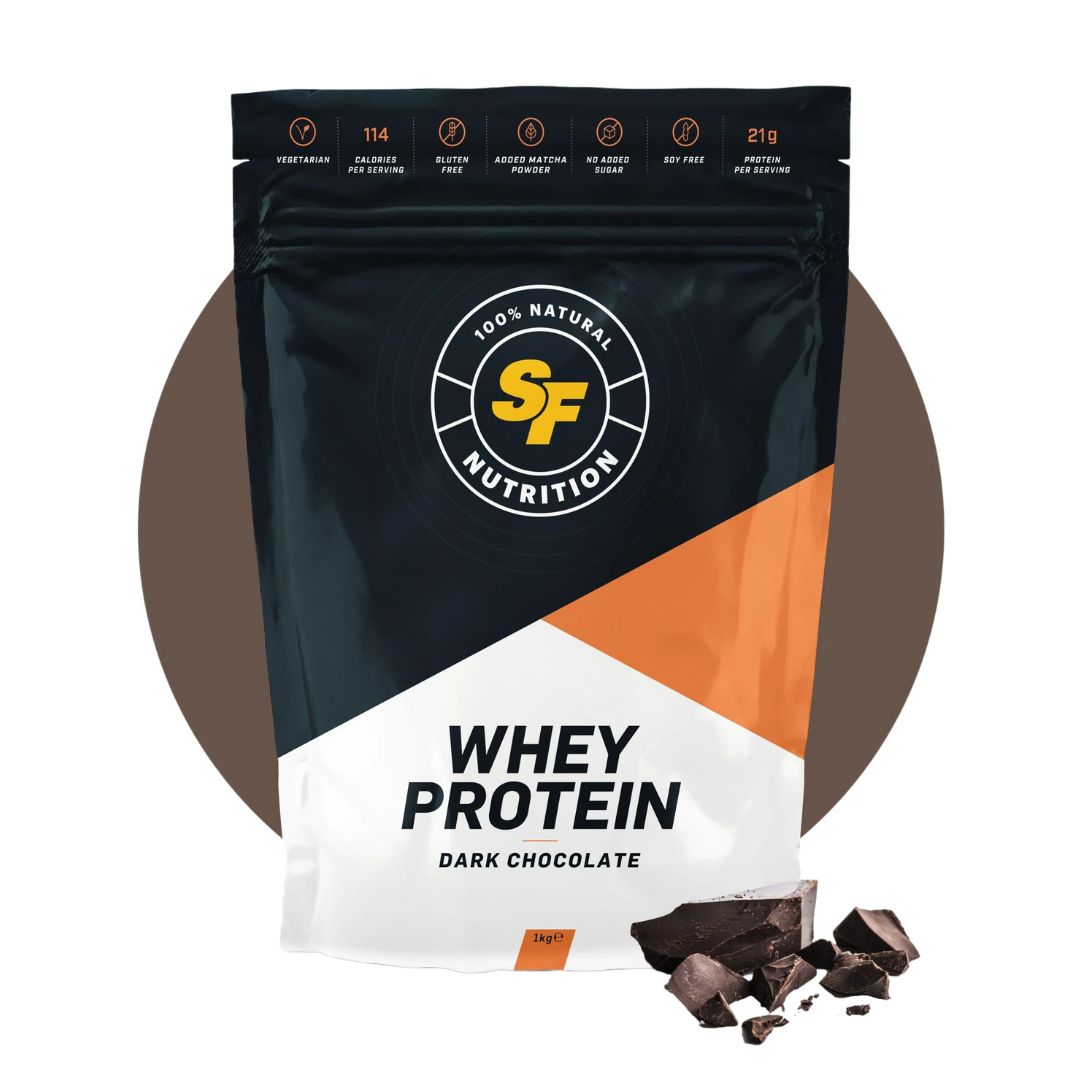
SF Nutrition Whey Protein
Specifications
Reasons to buy
Reasons to avoid
Why to buy? Another no-nasties powder, this blend from SF Nutrition promises to be a "clean" protein - that is, no additives, artificial sweeteners or flavours, and no added sugar. It's great in a morning smoothie, but also in pancakes, muffins, cakes, and more.
9. Pulsin
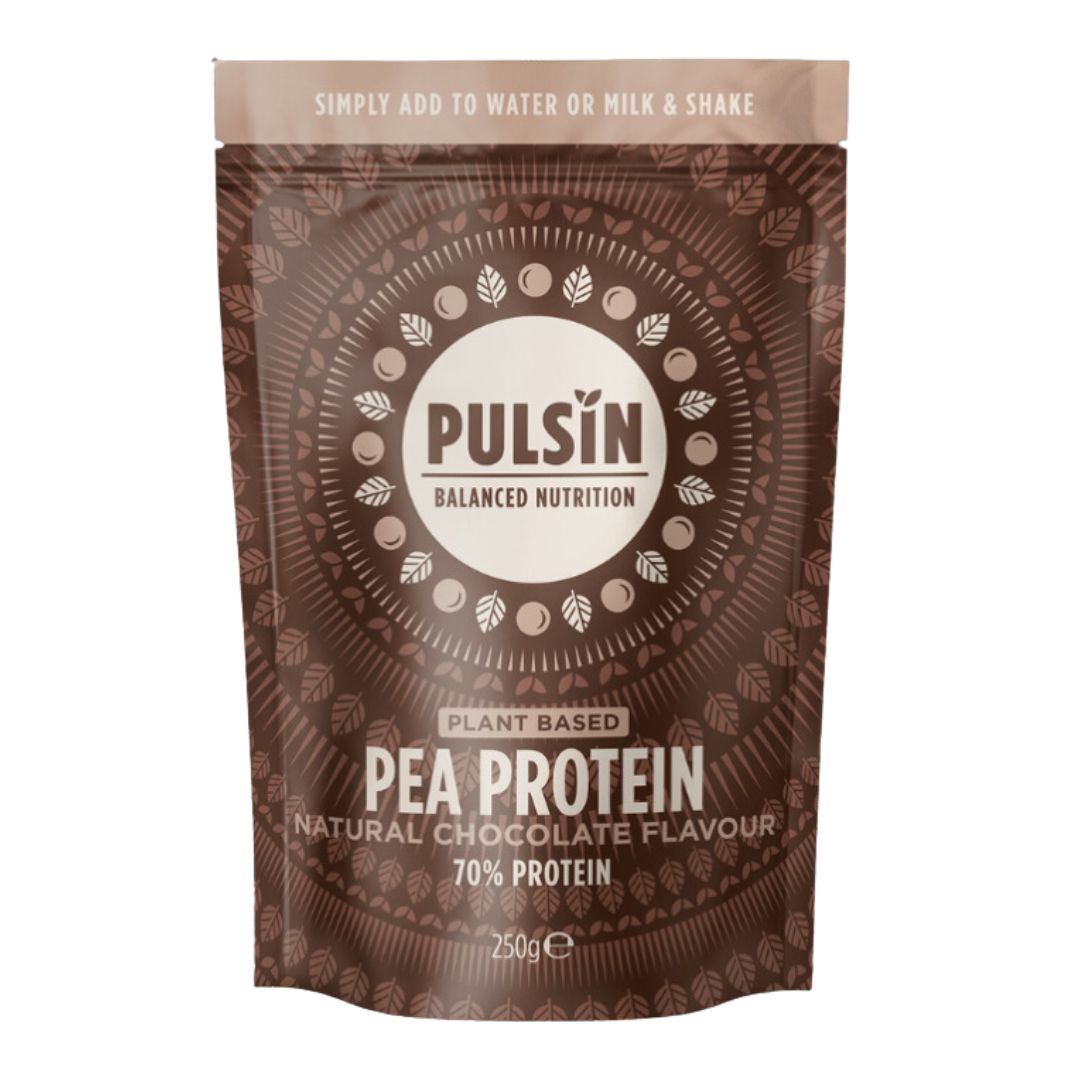
Pulsin Pea and Chocolate Protein Powder
Specifications
Reasons to buy
Why to buy? Last but by no means least, this vegan, non-GM protein powder - which also has no added fillers or sugar - is all-natural and therefore easily digestible, to boot. Also rich in iron and zinc - win, win, win.
10. ESN IsoClear Whey Protein
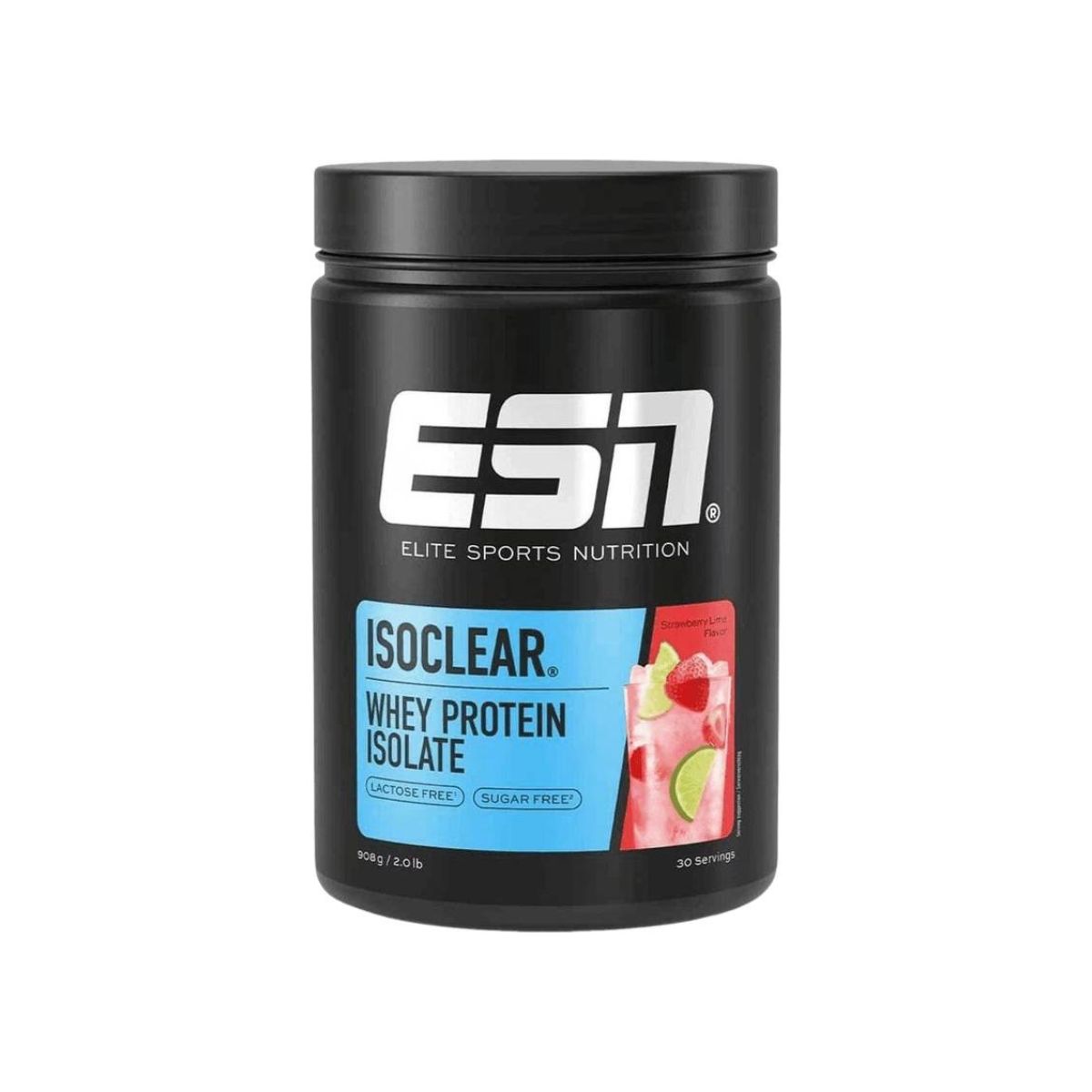
ESN Strawberry Lime Isoclear Whey Protein Isolate
Specifications
Reasons to buy
Reasons to avoid
Why to buy? This protein powder is light and refreshing, and a great option for hot summer days or if you don't like the rich, creamy, milkshake-esque qualities of standard protein powders. While all clear proteins are having a bit of a moment right now, this one is one of the best quality in our opinion - there are a wide and impressive range of flavours on offer and all that we've tested taste just like squash. 25g of protein for a glass of squash? We're sold.
News Editor Jadie agrees, adding: "I haven't stopped yapping about ESN's clear protein range to anyone who will listen (ask Team MC UK). It's such a good alternative to traditionally thick and creamy protein shakes; mixed with water and topped with ice, it's a light and refreshing drink that's packed with protein - 25g per serving, in fact. My favourite is strawberry and lime as it's sweet enough to curb sugar cravings, and there's an impressive selection of flavours to choose from."
11. Selfish Supps
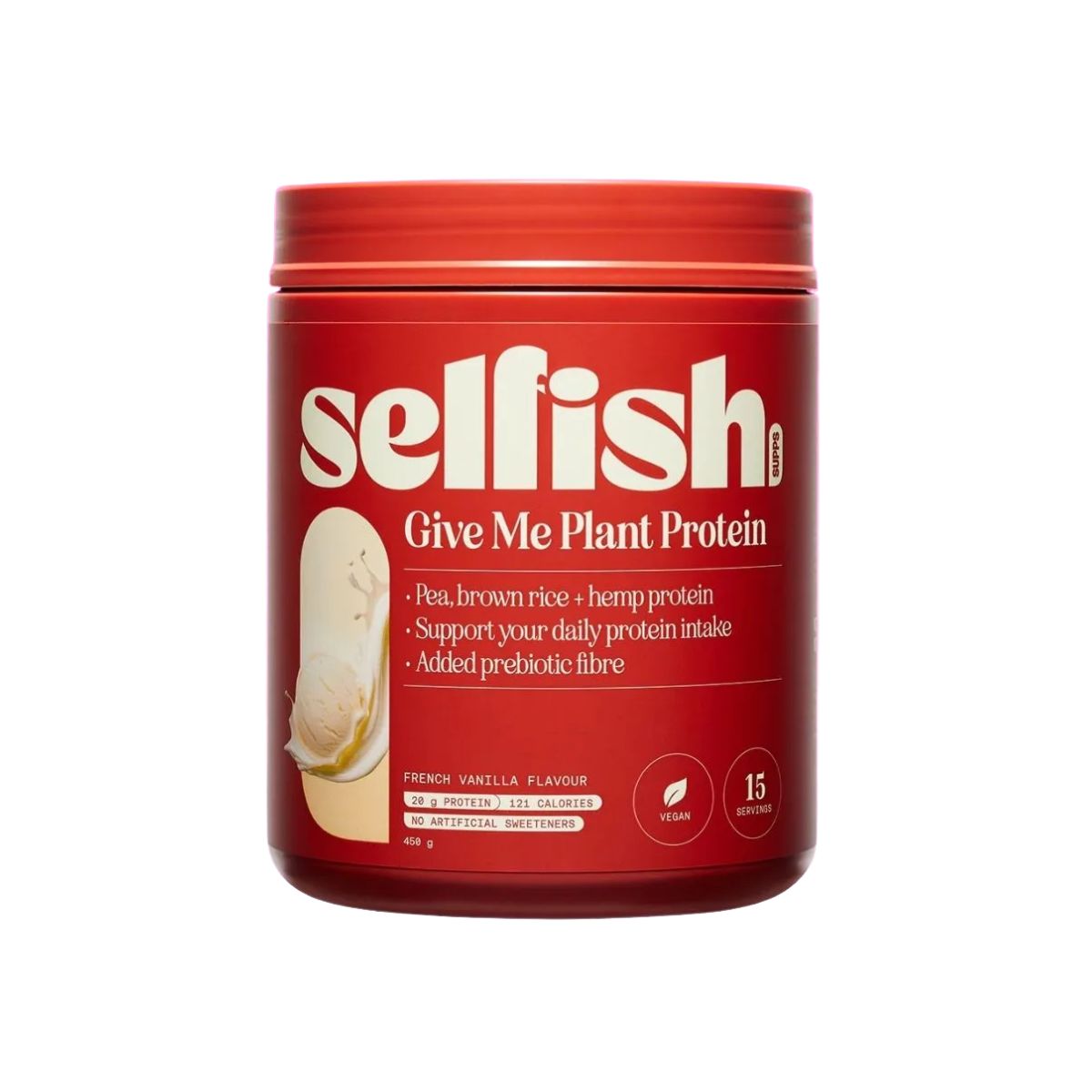
Selfish Supps Give Me Plant Protein 450g Vanilla Flavour
Specifications
Reasons to buy
Reasons to avoid
Why to buy? Junior Shopping Editor Amelia Yeomans really rates Selfish Supplements. Founded by the Hembrow sisters Tammy, Emilee and Amy, the brand has a cult-like following in Australia, where they're from, and landed in Boots in the UK in June. "I've never been able to stomach a huge amount of protein powder, so I love that this one only needs to be mixed with 250ml of water or milk for 20g of protein. The vanilla flavour is lovely and sweet, which is my preference, and as far as vegan protein powder options go, it isn't gritty or chalky. It's made from pea protein, so suitable for plant-based diets, and the flavour is ideal for putting into oats or smoothies. It does still have a slight protein-y taste to me (that is, it doesn't taste like a pure vanilla milkshake), but it's still easily one of my favourite vegan powders I've tried."
12. Welleco
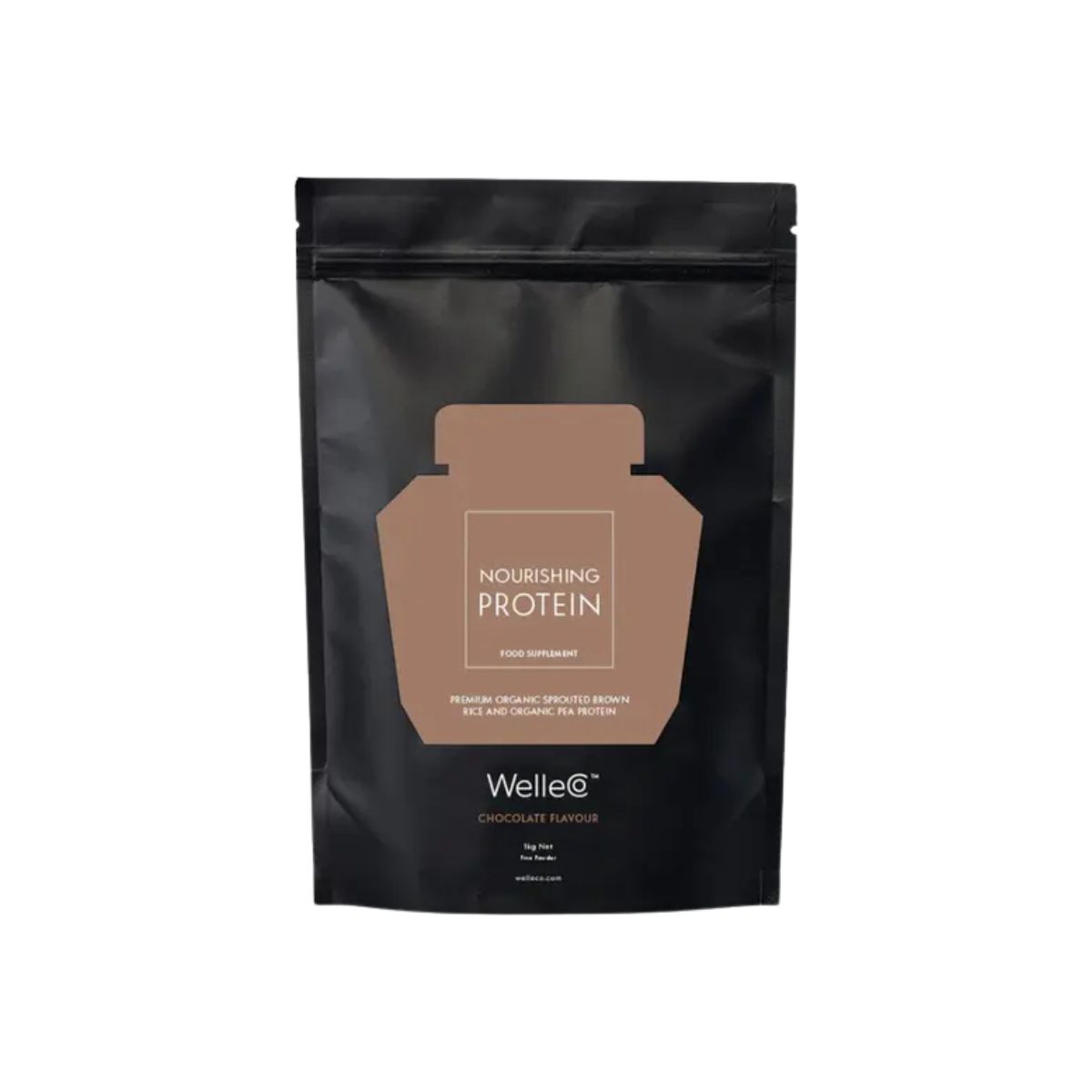
Welleco Nourishing Chocolate Protein
Specifications
Reasons to buy
Reasons to avoid
Why to buy? I saved the best 'till last - because trust me, this is one of the best protein powders you'll ever try, and easily the best plant-based option. And I truly mean that - I actually didn't realise it was vegan the first time I tried it, it's that creamy and smooth.
A product from Elle Macpherson's wellness company, Welleco, the protein powder is a blend of pea and brown rice and contains magnesium, B vitamins, and more. And the best bit? You're getting an impressive 21g of protein per serving.
When testing, I found it almost unbelievably smooth, easy to mix, and easy to digest, too. There were zero lumps in my protein shaker and no bitter or chalky aftertaste. Need more convincing? It tastes the most like a (sugarless) chocolate milkshake than any of the other protein powders I've tested in my time.
What are the main benefits of protein powder?
1. Protein aids muscle recovery
People most commonly supplement protein alongside regular workouts - that is, regularly moving three or more times a week - as protein can ease DOMs and aid muscle repair post-workout. That's because protein is the 'building block' macronutrient and is made up of amino acids, which act as building blocks for recovery.
As Whitehead puts it, "protein, which breaks down into amino acids in the body, aids muscle growth and repair as well as helping to preserve lean muscle tissue when losing fat."
2. Boosts satiety
Eating enough protein also promises to boost satiety - that is, keep you fuller for longer - which is why protein is often also hailed as a good supplement for fat loss.
3. Enables you to hit your macros easily
Similarly, it's a good way to ensure you're getting enough of the macro if you're vegan or just struggling to get enough protein in your daily diet generally.
3 most common protein powder myths, debunked
1. Protein powder makes you gain weight
False. According to Whitehead, many people confuse protein powders with "weight gain" powders which people use for bulking or - yep, you guessed it - gaining weight.
Her advice? Always check the ingredients label before you buy. Think about it - you wouldn't eat a snack bar or buy a sandwich without at least having a vague idea of what was in it, right? "Weight gainer powders tend to have high fat and carbohydrate content, whilst pure protein powders will only contain a small number of sweeteners and flavourings, if any," shares the dietician.
2. Protein powders should only be consumed post-workout
False. A lot of people assume that protein powders must be used immediately after a workout but Whitehead explains that you can enjoy a protein shake at any time of day.
“Although your body does need more protein when working out regularly, drinking a protein shake immediately after a workout isn't the only way to supplement," she explains. "I say go and have a shower and some lunch, then have one after… or just add it to a breakfast shake," she recommends.
3. Protein powder shouldn't be used during pregnancy
False. Whitehead maintains that you can use protein powders pretty much any time, even during pregnancy.
"This can be especially helpful if you’re not consuming enough protein due to morning sickness," she explains.
Do be careful, however: to opt for the powders with the fewest amount of ingredients. Look to avoid the ones with added caffeine, sweeteners, vitamins, and fillers, and do consult your doctor if you have health conditions including diabetes and renal failure.
Also, do note that you *can* get enough protein from your daily diet, and that should be Goal A. But if you're struggling, supplementing can be an easy way to balance your macros.
This article was originally published in 2021 and has since been updated to include more recent reviews, accurate prices, and up to date imagery.
How do you use protein powder?
Good question. The most basic way to enjoy it is a shake with water or milk, but you can add your powder to pretty much anything, from porridge to pancakes, to muffins.
Top tip: Mix the scoop with a small amount of water and make it into a paste prior to adding it to your smoothie (scroll our go-to smoothie recipes, here) or liquid. That way, you rid the shake of pesky protein lumps (not nice).
Alternatively, you could invest in a good protein shaker bottle - worth every penny for a smooth mix.
What are the different types of protein powder?
There are loads of different types to choose from, as outlined above, but the three most common types are whey, soy, and casein. Rather eat yours instead of drink? Scroll our edit of the best protein bars here.
How much protein do you need per day?
As per the NHS website, most adults need around 0.75g of protein per kilo of body weight per day. This averages around 45g for women, but if you are a more active individual - that is, you exercise three to four times a week or more - then your recommended daily intake will be higher. Aim for 1.2 to 2g per kg of body weight per day, or, if you're an endurance athlete, 1.2 to 1.8g per kg of bodyweight.
Whitehead stresses the importance of those who exercise regularly eating more protein: “It’s important to increase your protein intake by around a gram per kilo of body weight a day if you exercise regularly.”
Think of it this way - if you don't have enough protein in your body, vigorous exercise can leave your muscles with a shortage of what they need to recover. Got it?
How to choose the best protein powder for you?
This will be down to a few factors, including your budget, hopes for the product, and personal preference. If you're a vegan or vegetarian, Free Soul or Wild Nutrition get my vote. I drink whey and personally use Hermosa, Form and Innermost the most regularly. That said, The Organic Protein Co. blends are incredible if you've got a bit more budget to play with.
Celebrity news, beauty, fashion advice, and fascinating features, delivered straight to your inbox!

Ally is Marie Claire UK's Senior Health and Sustainability Editor, a well-regarded wellness expert, ten-time marathoner, and Boston Qualifying runner.
Utilising her impressive skillset and exceptional quality of writing, she pens investigative, review and first-person pieces that consistently demonstrate flair and originality.
As well as writing, Ally manages a team of freelancers, oversees all commissioning and strategy for her pillars, and spearheads the brand's annual Women in Sport covers, interviewing and shooting the likes of Mary Earps, Millie Bright, and Ilona Maher. Shortlisted for three BSMEs and winning one in 2022, Ally lives and breathes her verticals: her eye for a story and connections within the wellness sphere are unrivalled. Follow Ally on Instagram for more.